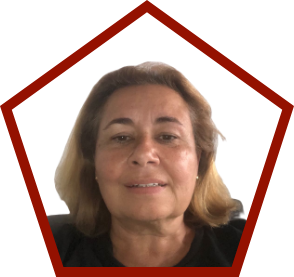Ms. Judith Gutierrez Negrín

Ms. Judith Gutierrez Negrín
A brief CV
Judith is a primary school teacher with a major in English language by the University of La Laguna, and she has a degree in primary education with a major in foreign language by the Camilo José Cela University.
Apart from her professional career as a language and English teacher in different educational centers in the Canary Islands, she has been an advisor in teacher’s centers and a trainer of trainers in learning and teaching of foreign languages for more than 10 years.
As an educational technical advisor in the Ministry of Education of the Canary Islands, she has designed, implemented and coordinated the anticipation and subsequent generalization of language learning from an early age and English conversation assistant program in the Canary Islands, for which she has received the Innovation Award from the Ministry of Education, also for the programs such as CLIL / CLIL in primary and secondary schools, and the Bachibac program, and she has collaborated in the design of their curricula.
She is currently in charge of the Office of European programs in the Vice-Ministry of Education where all the programs of Internationalization of education in the Canary Islands are managed, promoting from the participation of educational centers in the different international programs, designing and training as well as coordinating the signing of agreements between the Ministry of Education with other international institutions, and with the Spanish national agency and the European Commission.
The influence of Internationalisation programs on the foreign language learning
Fortunately, the current educational world has invisible borders, we are living in the era of globalization and it seems increasingly easier to connect with others, therefore, nowadays mutual understanding is necessary.
Language learning is no longer a subject that is passed or failed in a school setting, now more than ever foreign language is a means of learning and communication, accessible, anywhere.
Learning also has a high social and cultural component and the best, an emotional component, too.. International mobility, participation in cooperation and exchange projects with peers from other countries play a very important role in language learning and in language learning.
We will see the impact that the internationalization of education can have on this type of learning.